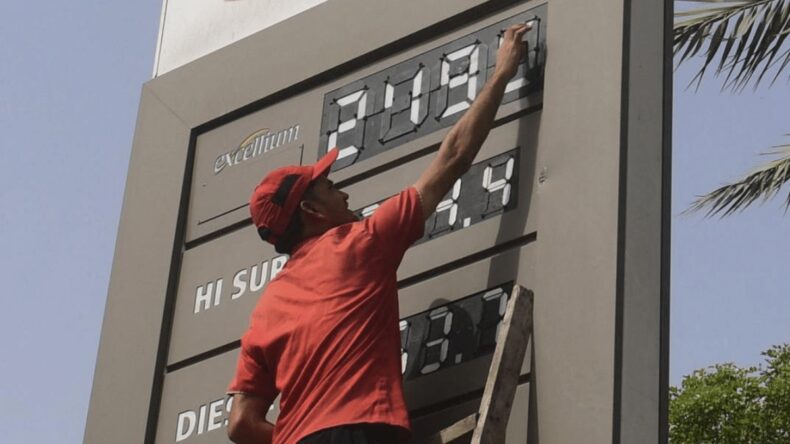Pakistan’s Finance Minister, Ishaq Dar, announced on Sunday that petrol and diesel prices would increase by 35 rupees ($0.1400) a litre. He also said that the prices of kerosene and light diesel oil would be raised by Rs. 18. The country is grappling with an economic crisis as the Pakistani rupee lost close to 12% of its value when it removed the price caps that were imposed by the government.

Ishaq Dar in a press conference on Sunday said that the price hike was imposed on the recommendation of the oil and gas authorities as there were reports of artificial shortages and hoarding of fuel in anticipation of price rises. According to reports, he said that there were speculations on social media about an Rs. 50 hike on oil.

Opposition party Pakistan Tehreek-e-Insaf chairperson and former Prime Minister Imran Khan criticised the petrol price hike, saying that the total mismanagement of the economy by the “imported government crushed the masses and salaried class.”
Reason why Pakistan Government took the decision
The decision to raise prices came days before an International Monetary Fund (IMF) team would visit Islamabad to discuss the country’s stalled funding programme. The IMF has been delaying the $6 billion bailout which was secured in 2019 under an Extended Fund Facility. The bailout was topped off with another $1 billion in 2022 due to the devastating floods.
The current economic crisis is a multi-dimensional issue. It has been worsened due to the widespread floods that destroyed large patches of crops and displaced nearly 3.3 crore people. Pakistan has also been battling skyrocketing inflation for the past few months, along with fuel shortages and extremely low forex reserves. The country is facing a balance-of-payment crisis and the plummeting value of the currency would raise the price of imports. Energy comprises a major part of the energy bill. The political instability and weak governance have also contributed to the mishandling of the economy.
In an attempt to conserve energy, the government announced a series of measures including closing malls and markets by 8:30 PM. The National Energy Conservation Plan was introduced to save the country about Rs 6,200 crore. National Austerity Committee (NAC) constituted by Prime Minister Shehbaz Sharif is also considering cutting down expenditures of ministries and divisions by 15 per cent, reducing the number of federal ministers, ministers of state, and advisers from 78 to 30 and asking the remaining to work on a pro bono basis.
Last week, Prime Minister Shehbaz Sharif said that the government was willing to accept the IMF’s strict conditions to revive the loan programme. Pakistan has been seeking monetary assistance from countries like China, Saudi Arabia and the United Arab Emirates.













